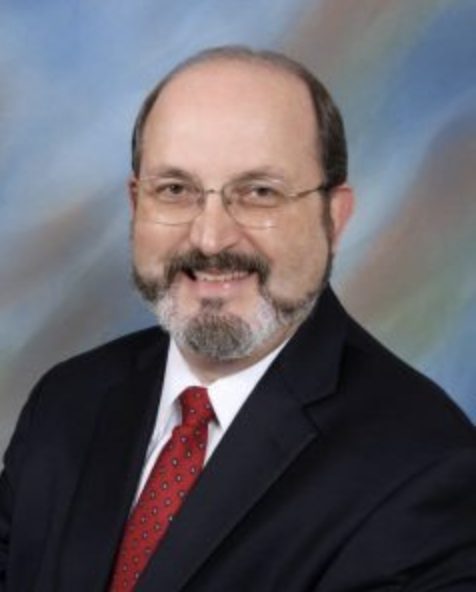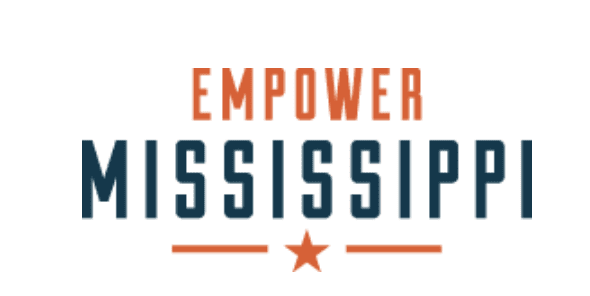
Bob Anderson, Executive Director DHS
Since his appointment by Governor Tate Reeves in March, Executive Director of the Mississippi Department of Human Services, Bob Anderson, has steered the agency in a new direction and away from the corruption of his predecessors.
Anderson came to the position at DHS after spending over 20 years with three different U.S. Attorney offices where he primarily prosecuted white collar crime. He is a native of Moss Point and a graduate of Millsaps with a degree in Political Science. He received a law degree from Mississippi College. He previously spent some time as Chief Integrity officer at the Division of Medicaid. Governor Reeves also recently appointed Anderson to the State Workforce Investment Board.
“When I got here, one of the questions I asked because of the problems the agency has had was, ‘Where is the compliance officer?’” said Anderson. “Well, we didn’t have one. We didn’t have a compliance officer; we didn’t have a compliance program to speak of.”
One of the first appointments he then made was an official compliance officer to begin creating, for the first time, a true compliance program within the agency.
Over the last seven months, Anderson said they have been reviewing operating procedures and even creating them in order to make sure the agency is functioning within compliance to the law.
In February of 2020, State Auditor Shad White arrested former DHS Director John Davis; former employee Latimer Smith; Dr. Nancy New, the owner and Director of the Mississippi Community Education Center (MCEC) and New Learning, Inc; Zack New, Assistant Executive Director of MCEC; Anne McGrew, Accountant for MCEC; and Brett DiBiase who were all connected with a multi-million dollar embezzlement scheme.
White’s office found that those accused conspired to illegally obtain millions in public funds from the Temporary Assistance for Needy Families (TANF) program through business entities that defrauded taxpayers.
“When I came here I spent the first month just really doing my due diligence, literally. Interviewing top level management, interviewing second level division directors,” said Anderson. He even went so far as to bring in a former IRS agent to conduct interviews to help determine who should stay and who should go.
During that time, DHS added three senior leadership positions and other division directors.
One of the commitments Anderson made when taking the appointment was to do a forensic audit of the agency. While the State Auditor does a single audit, Anderson said he believed that the agency needed to look even closer. Doing a forensic audit would allow them to look at the federal guidelines, as well as state law, and make sure what money should have never been expended.
DHS hired the firm CliftonLarsonAllen LLP to conduct the forensic audit. It is currently still in process. The audit could stand up as evidentiary material in any criminal or civil trial. Auditors will be looking at every TANF transaction from January 1, 2016 until December 31, 2019. Anderson said they suspect that to be roughly 125,000 transactions.
The firm will determine what is an “unallowable” cost. Anderson said he expects there to be a big difference between the question cost of the Auditor’s office, which was $94 million, and the unallowable cost. While they do not know what that number will be, Anderson said he hopes it will be a third, or less, of the Auditor’s figure. The State Auditor’s office is also working as a third party in the process.
The final report should be filed within the next nine months.
Whatever that number is, Anderson said there could be federal consequences which could require a repayment or corrective action plan.
When it comes to the importance of DHS to a state like Mississippi, the Executive Director said it is “very crucial to hundreds of thousands of families.”
With just the SNAP benefits alone, which is the food assistance program DHS operates, the agency supports over 350,000 Mississippians. While TANF does not support as many families, those who do rely on that support could not get by without it.
DHS is also responsible for running the child support program for the state. That program generates roughly $300 million a year for families. They also run a childcare program and provide vouchers to families who need access to childcare, as well as assistance to the providers themselves.
“With some CARES Act money that we got, separate from what the Legislature allocated, we got about $47 million worth of CARES Act money specifically for childcare. So we’ve been helping our childcare centers try to stay open,” said Anderson.
He said about 900 facilities closed during the initial response to the pandemic.
The funds were divided between those who were able to stay open based on enrollment and not attendance. Anderson said that allowed the centers to keep their doors open.
DHS also created a special type of childcare program called the Childcare Aid in Isolation Response Plan. That allowed for temporary emergency vouchers for first responders and healthcare workers who were required to stay working but needed childcare.
Due to COVID-19, DHS has made adjustments in the way they assist individuals paying home bills. Roughly $9.2 million went through their Low-Income Housing Energy Assistance Program (LIHEAP), which helps people pay their monthly expenses. This applied to individuals who may have lost work due to the pandemic.
DHS received $15 million to help in rental and mortgage assistance. Those who apply must meet certain eligibility requirements before gaining assistance. This is separate from the program established by the Legislature.
“One of the things we’ve seen a huge uptick in is our SNAP population. Back in March and April we saw our numbers go up by thousands in a week,” said Anderson. He said that required some extra hours by DHS staff who, he said, have been committed to doing what they need to do in order to get that assistance out the door.
Those additional programs funded by CARES Act dollars are still open for applications for individuals and families that need assistance during this time. Anderson said for inquiries of benefits from LIHEAP or rental assistance it is best to visit a local Action Agency. However, for SNAP, TANF, or childcare assistance applications can be made directly to DHS online or by telephone.
Anderson is calling this turnaround “Operation Restore Trust,” which he said is focusing DHS on integrity, compliance and moving the agency toward excellence. He said he plans to lead by example.
“I’m going to follow the law, to the letter. That’s why the Governor asked me to become the Executive Director. I’ve been a federal prosecutor, my integrity has never been questioned and I’m going to walk the walk, not just talk the talk about integrity,” said Anderson.













